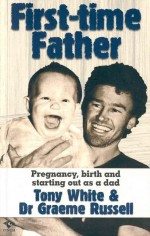Women’s Refuge Involved in Dubious Child Uplifting.
A Women’s Refuge worker assisted in forcibly removing a 3 year old boy from his father in Christchurch, and driving him several hundred kilometers to a hidden location, where his mother was waiting for him.
The worker assisted in executing a Custody Warrant with the police, issued only two days after the father failed to return the boy.
He was supposed to return the boy not to the mother, who is understood to hide at a South Island Women’s Refuge from a violent ex-partner, to whose child she had recently given birth, but to a go-between.
The father had approached the Father & Child Trust with concerns for his child’s safety, if returned to the mother.
Father & Child worker Kori Bragg, who had been in personal contact with father and son several times over the week preceding the uplift, has observed the boy to be settled in his present environment, and well bonded to his father, who also reported that the boy’s health had improved after he had taken over care of him.
The father reported that the worker involved in uplifting the boy had told him he had now ‘lost all rights to his child’.
Father & Child Trust coordinator Harald Breiding-Buss says he is “greatly disturbed by the unprofessionality of the Women’s Refuge worker’s actions and words.
“Removing a child of that age from his primary caregiver at the time in this fashion by people basically unknown to him is not something any professional would do unless there were grave concerns for the child’s safety”, says Breiding-Buss.
“And the claim that the father has lost rights to his child is ignorant at best. A child’s right to meaningful contact with both parents is a human right enshrined in international law”.
Breiding-Buss also expressed ‘surprise’ at the issue of a custody warrant without prior consultation with the father to find out whether there are valid reasons for keeping the child with him.
The boy, whose name cannot be disclosed under current law, is now out of reach of any contact by his father, and the Trust has asked Child Youth and Family to keep an eye on the boy’s safety.





